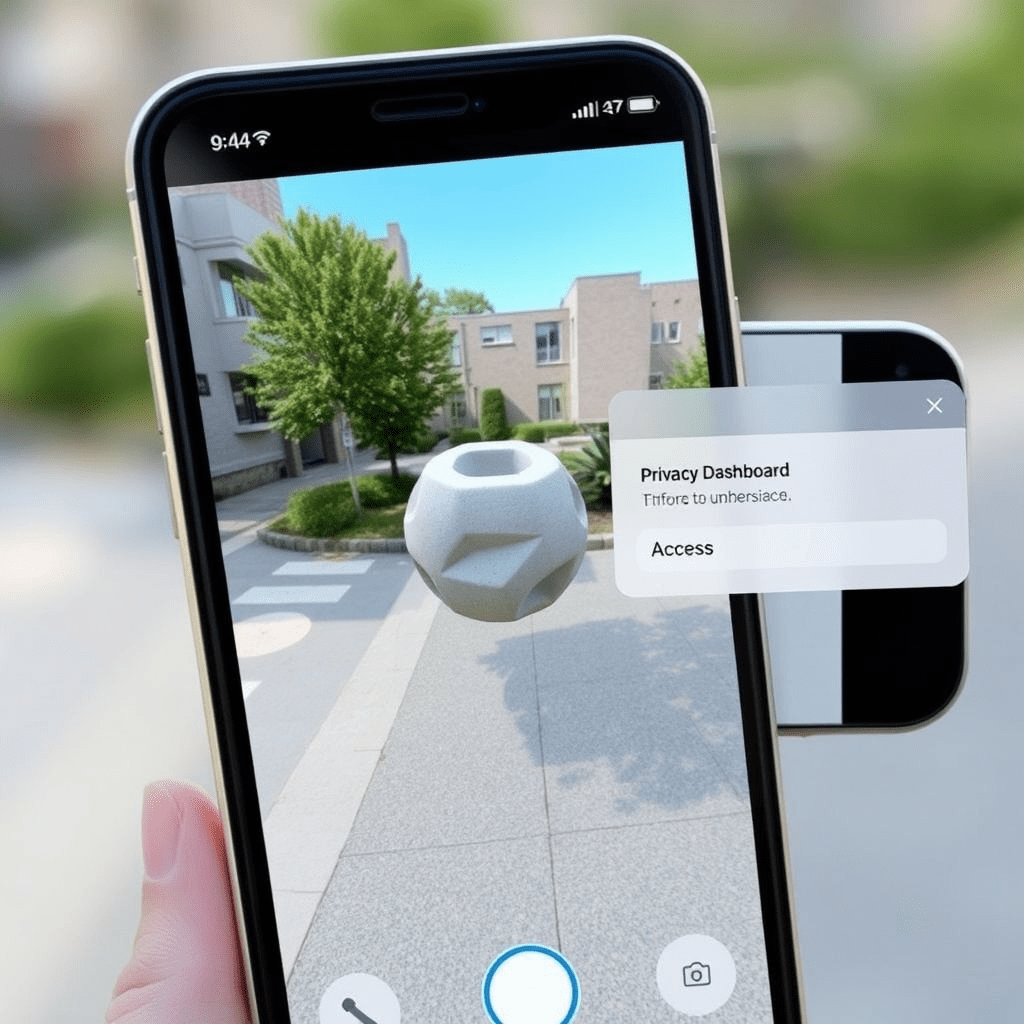Introduction
On August 12, 2025, Apple seeded the iOS 19.1 developer beta to its developer community, offering early access to ARKit 7, improved privacy tools, and enhanced system transparency. This update demonstrates Apple’s dual commitment to pushing the boundaries of augmented reality while fortifying user trust in data protection.
Background: iOS 19 Evolution and Developer Beta Access
- iOS 19 — officially launched in September 2025 — rolled out sweeping UI updates, such as a floating tab bar and a visionOS-inspired interface, alongside deeper Siri personalization and end-to-end encrypted RCS messaging.
- The developer beta program allows registered developers to test upcoming iOS features before public release. These betas are part of Apple’s broader beta initiative, which includes public beta access to help refine new software.
The iOS 19.1 beta emerges as developers continue fine-tuning augmented reality pipelines and strengthening app privacy infrastructures ahead of a planned public rollout later this year.
ARKit 7: Elevating Augmented Reality
ARKit has been central to Apple’s push into AR since its debut. The new ARKit 7 introduced in iOS 19.1 developer beta includes several key enhancements:
- High-Fidelity Environment Mapping
Developers now have access to richer, more precise spatial awareness, enabling digital content to interact more naturally with real-world surfaces and structures. - Advanced Motion Tracking
ARKit 7 refines device motion tracking, improving stability for multiplayer or physically interactive AR experiences—critical for gaming and industrial applications. - Enhanced 3D Model Support
Apple has expanded support for complex, high-polygon 3D assets, allowing creators to bring more detailed digital objects into their AR scenes without compromising performance. - Cross-Device AR Sharing Tools
Developers can now synchronize shared AR experiences across iPhones, iPads, and Mac devices, making collaborative or persistent AR environments seamless.
These advancements position ARKit 7 as a major tool for creative game designers, educational platforms, and enterprise use cases—encouraging developers to experiment with immersive, collaborative AR workflows.
Privacy Enhancements and System Transparency
Parallel to AR improvements, iOS 19.1 developer beta introduces robust privacy features:
- Privacy Dashboard Integration
Developers can now integrate their apps more seamlessly with the iOS Privacy Dashboard, offering transparent insights into when and how user data is accessed. - Data Minimization Tools
Apple continues to enforce minimal data collection mandates, providing developers with APIs to request only essential information and automatically inform users of data usage patterns. - Refined Permission Controls
iOS 19.1 enhances permission granularity—allowing time-limited location access, more granular camera/microphone toggling, and better tracking opt-outs.
These privacy updates align with Apple’s broader stance on user sovereignty and transparency, improving how apps interact with sensitive data.
Developer Insights and Ecosystem Impact
Developers across Apple’s ecosystem are already responding positively:
“ARKit 7’s motion tracking improvements are set to redefine what’s possible in collaborative AR gaming,” says augmented reality studio CTO, Lina Rodriguez.
Privacy-focused indie developer Noah Lee adds:
“The Privacy Dashboard APIs give us the transparency we’ve been asking for—users will see exactly what’s happening, not just what they might suspect.”
These endorsements underline iOS 19.1’s relevance for both immersive innovation and privacy-forward app development.
Market Impacts and Competitive Positioning
By integrating ARKit 7 and privacy improvements into the developer beta, Apple is reinforcing its competitive edge:
- Among AR platforms, this strengthens Apple’s position relative to Android and standalone AR headsets by offering seamless, high-performance AR across iOS devices.
- For privacy-conscious consumers, Apple distinguishes its ecosystem from others by enhancing control and transparency—critical as regulatory pressures intensify globally.
Developers leveraging these new features may gain early-mover advantages, as compelling AR and privacy-focused apps could stand out in an increasingly crowded market.
Risks and Developer Considerations
- Beta Instability: As with all developer betas, iOS 19.1 may introduce unexpected bugs or UI changes. Developers are advised to test on secondary devices.
- Public Release Timing: Based on past patterns, a stable public release of iOS 19.1 could be expected in late 2025 or early 2026—timing that may coincide with hardware announcements or holiday marketing strategies.
- Regulatory Compliance: With evolving regulations (such as EU Digital Markets Act), Apple’s enhanced privacy tools will be vital for developers targeting global audiences.
What Comes Next?
- Developer Trials: Expect a surge in AR app submissions, showcasing multi-user environments, virtual collaboration, and enterprise AR tools.
- Privacy as Standard: Transparent privacy tracking may shift from optional to expected; apps lacking clear disclosures could face reputational damage.
- Cross-Platform Expansion: ARKit 7’s shared session features could pave the way for ecosystem-wide AR experiences—linking iPhones, iPads, Macs, and possibly Apple Vision hardware.







